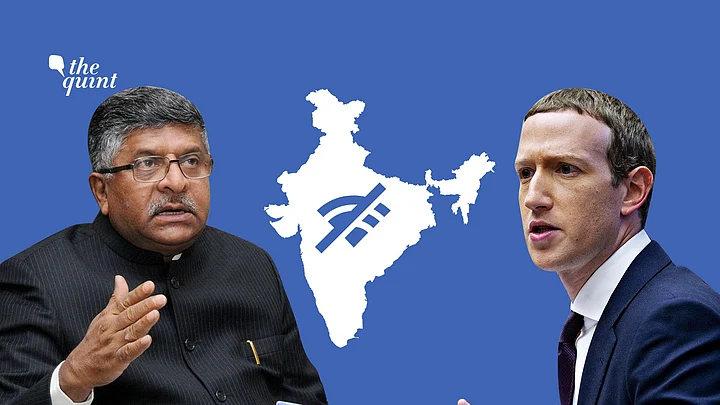The Facebook Transparency Report, published on 14 November for the period of January to July 2019, offers a picture of how the Indian government has restricted access to the internet while using the social media platform to seek more information on citizens.
The period of the report covers the campaign period as well the Lok Sabha elections in April and May. it reiterated that India cut off access to the internet more times than any other country where the social media giant operates, it also highlighted the Indian government’s increasing demand for user data from Facebook.
However, a telling statistic from the report shows that Facebook has provided data on only half the requests that it received from the government. This indicates that the other requests, according to the social media company, were not proportional or specific enough to warrant data sharing.
India Tops in Internet Restrictions
With a total of 40 internet disruptions between January and June 2019, India topped the number of ‘intentional disruptions’, according to Facebook’s 'Transparency Report' released on 13 November.
India’s shameful record of shutting down the internet (often on bizarre grounds), has once again been highlighted in Facebook’s report. India had topped the world in internet shutdowns in 2018 with a whopping 134 times. In 2019, till November, the number stood at 85.
The Facebook report defines ‘Internet disruptions’ as:
Intentional restrictions on connectivity that limit people’s ability to access the internet or specific websites and apps. Disruptions prevent people from sharing and communicating with their family and friends and create barriers for businesses.
Kashmir Offline
If India wears the ignominious crown of cutting of access to internet more than any other country in the world, then Jammu & Kashmir is jewel in that crown.
It is important to note that out of 40 disruptions recorded by Facebook in the first six months of 2019, 31 of them were in Jammu & Kashmir.
If the erstwhile state has been under a continuous internet shutdown for over one hundred days and counting since the abrogation of Article 370 on 5 August, this report illustrates the fact that the first half of the year was nearly as oppressive as the second half has been.
Rise in Requests For User Data
A larger trend that is now visible is the consistent rise in the number of requests for user data that the Indian government has sent to Facebook. Law enforcement and other government authorities want more data of its citizens.
Given India is home to more Facebook users than any other country, the government has been keen to regulate the social media platform – from proposing a now withdrawn social media hub to compelling it to share data by tightening the screws around internet intermediaries like Facebook.
Only About Half of All Requests Granted
Perhaps the most telling data in the report is the percentage of requests that Facebook has actually entertained. Of the 22,684 requests between January and July, it is important to note that Facebook has provided some data in only 54 percent of the cases. In other words, nearly every second request for data on citizens has been turned down.
According to Facebook, it “responds to government requests for data in accordance with applicable law and our terms of service.”
The California-based company said that “each and every request we receive is carefully reviewed for legal sufficiency and we may reject or require greater specificity on requests that appear overly broad or vague.”
Among other major countries which had sent at least a thousand requests or more, India has among the lowest rates of success in getting some data on their requests. The statistic raises questions of proportionality and specificity of the requests.
Pakistan Pips India in Content Takedown
While India requested 1,250 items on Facebook to be taken down, it was pipped by Pakistan, which topped the list of countries with 5,690 such requests.
Facebook permanently restricted access to content in India in response to legal requests from law enforcement agencies, court orders, and the Ministry of Electronics and Information Technology.
Content restricted was alleged to violate Indian laws on the grounds listed under Section 69A of the Information Technology Act, 2000.
The request for restrictions are primarily in the categories of hate speech, anti-religion content constituting incitement to violence, defamation, extremism, anti-government, and anti-state content.
This included temporary restriction of access to 448 items in response to reports received from the Elections Commission of India alleging that the content was subject to election blackout periods.
(At The Quint, we question everything. Play an active role in shaping our journalism by becoming a member today.)
